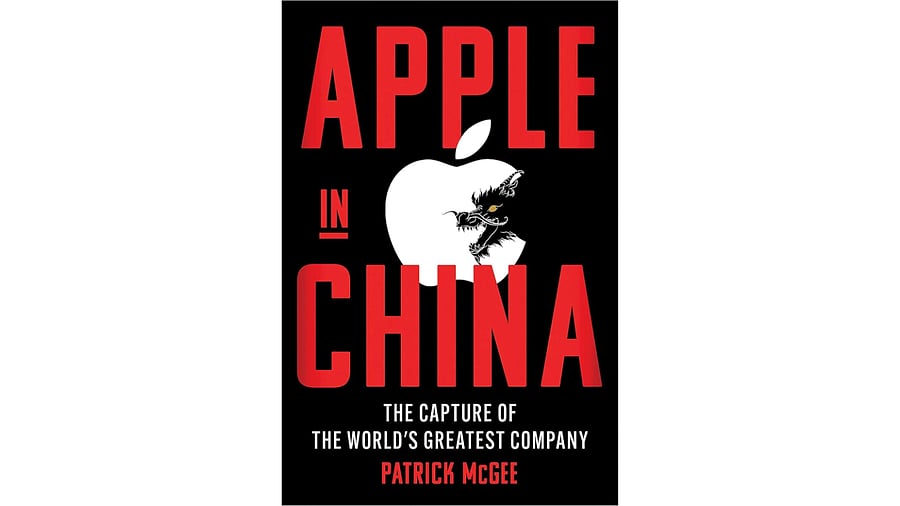
Apple in China
Technology generation and ownership have emerged as pivotal fault lines in the contemporary rivalry between the United States and China. Patrick McGee’s book arrives at a particularly opportune moment, as the world — China foremost among its actors — remains deeply embroiled in an escalating trade war with Washington.
The second Trump administration has sharpened geopolitical uncertainties: Beijing has retaliated to tariff threats by weaponising its dominance over rare earths, manufacturing capacity, and global supply chains, while imposing counter-tariffs of its own.
The world understands that today, Apple, one of the most lucrative and profitable American firms, is dependent on Beijing. The general perception is that Apple needs China to survive. While this dependence is widely acknowledged, the precise mechanics of how it evolved — and why — remain less understood. McGee juxtaposes these two realities with skill. In addition, at the outset, the author asserts that the book “isn’t about the globalisation of electronics, but rather, about its Chinafication” and further argues that, “…. China wouldn’t be China today without Apple”.
One can rightly conclude that Apple today is in the middle of a major geopolitical uncertainty. The author marshals extensive research, data, and anecdotes, offering rare insights into the workings of one of the world’s most secretive companies. The effort undertaken is enormous, and the outcome is interesting and intriguing. The general perception is that Apple outsources production to China; however, the author asserts that, “…. Apple had only dozens of people involved in its Asia operations, but the team would expand wildly over the next decade, exerting such a degree of control that the term outsourcing would become misleading if not wholly incorrect.”
With the advent of Xi Jinping, the domestic political dynamics in China have mutated rapidly. Xi’s policies have pushed every country to rethink and revisit its policies towards Beijing. Xi has changed the Western belief that economic growth will ultimately push Beijing to change its political apparatus. The author explains, “China might be mimicking the West, but it wasn’t actually becoming Western….”.
However, what has happened is that China under Xi is looking inwards and getting increasingly aggressive. Xi understands the centrality of China to the global economy and is poised to benefit from this position. The author explains this when he writes, “Behind its unprecedented financial success in the country was a dizzying array of problems, and the tech giant had far too few people on the ground with the cultural and political acumen to address them. Then, amid the confusion, Beijing selected a new general secretary to lead the Chinese Communist Party.” To complicate matters for Apple, “The fate of all of the company’s hardware production relies on the good graces of America’s largest rival.” Apple, too, was taken by surprise.
What one can perceive is that Apple failed to grasp the omnipresence of the Chinese Communist Party (CCP) in every aspect of the Chinese economy and policies. The CCP understands and plays a very central role in how foreign investors can or cannot do business in China. From the outset, it has been very pro-joint ventures. Especially with the idea of gaining technology and know-how. Under Xi, the dictum is clear: that China has to move up the manufacturing ladder. To do that, it needs to build newer cutting-edge technologies. The desire to manufacture and design chips and semiconductors is rooted in this notion.
The author explains this when he says that, “The party’s whole reform program was meant to lure in capital and Western businesses as a way of learning, so China could reverse-engineer the technology, replicate it, and then replace it”. What Apple did is not only outsource materials and components, but it also sent its own engineers and technicians to train the Chinese engineers. “Cook didn’t want Apple to be the developer of the world, and it wasn’t. It did, however, become the developer for China”.
Today, Apple recognises the need to loosen its ties with Beijing, yet finds itself entangled in multiple geopolitical flashpoints: US–China tensions, Beijing’s posture toward Taiwan and the risks to TSMC, as well as India–China frictions. The company is also implicated in debates over human rights, labour conditions, and environmental sustainability.
Over decades, Apple helped cultivate China’s manufacturing ecosystem — an intricate web of skills, processes, and supply relationships that cannot be replicated quickly elsewhere. “What China offers, in other words, is not simply labour, but an entire ecosystem of processes developed over more than two decades”. This relationship has also been successful because China has shown equal keenness to learn and adapt, while Apple has been ready to teach. It is not a simple outsourcing business. However, today, the dependence can be seen as a weakness for Apple as it may not be able to replicate the model fast enough to continue meeting its demands. As a corporation which is supposed to be profitable, Apple has been remarkably successful; however, as McGee underscores, Chinese nationalism poses a persistent risk, forcing Apple to navigate between competing nationalisms with extraordinary caution.
In the end, Apple’s story stands as a cautionary tale about the limits of globalisation—and a reminder that realpolitik, not market logic, ultimately shapes the world order.
The reviewer is an Associate Professor at OP Jindal Global University.